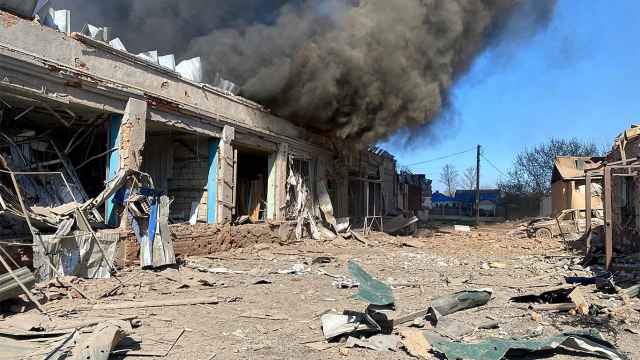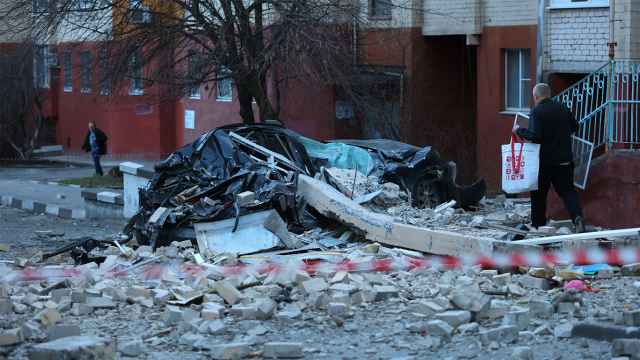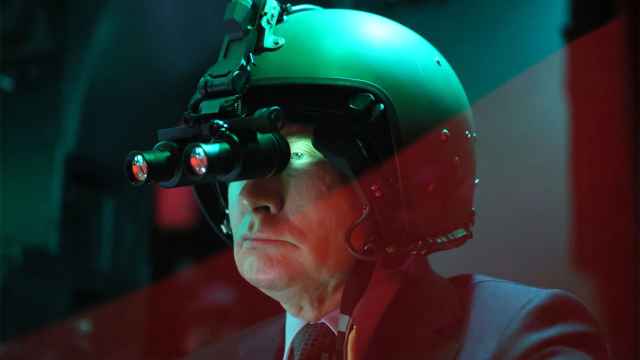I've been sometimes blessed and sometimes cursed by being a witness to a few truly historical events in the dramatic and traumatic life of my country. One of my brightest childhood memories is from when I was 6, when Yury Gagarin completed his flight to outer space in April 1961. It was a sunny day. I remember the radio announcement when we were in kindergarten, the excited nannies and how we celebrated that tremendous event for days.
Yet this euphoria was followed by the invasion of Czechoslovakia in 1968, the destruction of the Prague Spring democracy movement and the painful feeling of being ashamed of the Soviet Union. It was as if I had become a teenage dissident overnight. I got expelled from the Young Pioneer Organization.
Then, in 1991, I experienced the best open-air party Moscow ever had, when rebellious youth joined forces with passionate intelligentsia to kick out the decrepit, but well-armed, Soviet regime.
Along with most Russians, I thought that overturning the Communists would pave the way to a new, democratic Russia. How wrong we were. Friday's verdict in the Pussy Riot case is surrounded by several symbolic coincidences. On the same day the three young female members of the punk rock group were sentenced to two years in jail for their February political art performance in Christ the Savior Cathedral, Moscow buried Sergei Kapitsa, a brilliant scientist and one of the country's last enlighteners. Goodbye intellect, hello dogma.
I have said and written many times that Russia is a feudal state. Despite the changes of ideological doctrines and economic policies, the core of its ruling methods have changed little since Ivan the Terrible. Russia's rulers have tried to "modernize" the country by implementing Marxism in the early 20th century and democratic and market reforms in the 1990s, but all of these foreign influences have failed. The medieval stains on Russian society haven't been so visible since the reign of Josef Stalin.
Under Putin, a feudal autocracy has emerged in a brazen fashion, though not in the same sense that the Soviet Union of Stalin or even Leonid Brezhnev will return. Nonetheless, it is pitiful when you think about how contemporary Russia is so far from being a superpower. It is "super" only in terms of its territory and natural resources. But as a state, nothing works except theft and corruption, which has increased to record levels under Putin's leadership.
Much has been written about the shameful details of the Pussy Riot witch hunt. What is most surprising to me was the muted reaction during the five-month pretrial detention from Western politicians and business leaders to the obvious violations of the young women's human rights. In April, some musician friends and I organized a concert in support of Pussy Riot, and Estonian President Toomas Ilves spoke in support of the imprisoned young women. He is one of the few leaders in the West who openly condemned Russia prior to Friday's sentencing for its persecution of Pussy Riot. Can this be explained by banal realpolitik, or was it perhaps simply indifference?
This silence was upsetting, and it contradicted all of the elevated principles and declarations that Western leaders love to talk about in their speeches. At the same time, musicians, artists and writers in the West have openly expressed their concern and indignation over the Pussy Riot case.
I am afraid that Russia will continue to deteriorate under Putin's rule, that it will become the Saudi Arabia of Europe — reduced to being only an exporter of oil and gas and a consumer of luxury cars. Moreover, it will become a country where human rights and basic democratic values are abused at will.
I am afraid that Russia will become hell on Earth — although, for some, it already is.
Artemy Troitsky is a rock journalist and music critic.








